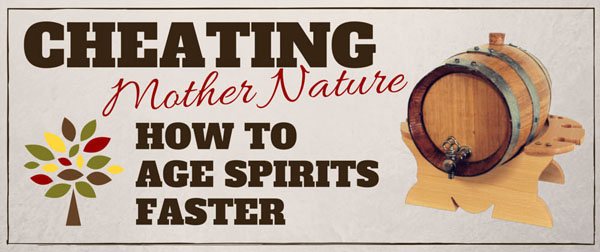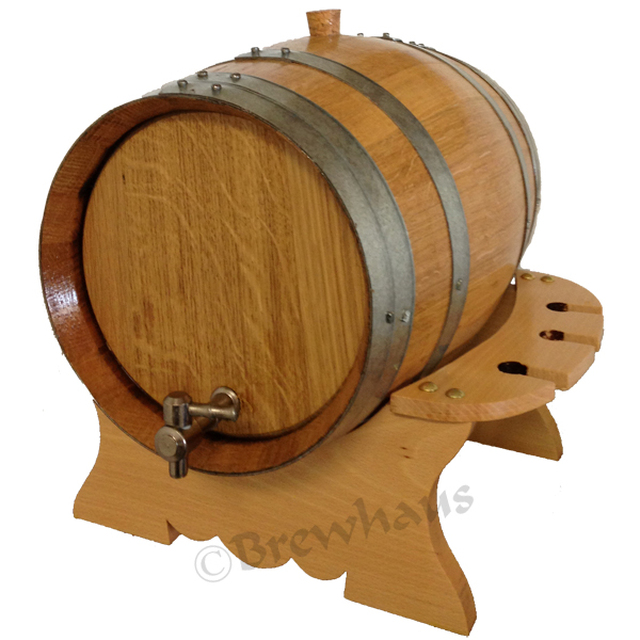Cheating Mother Nature: How To Age Spirits Faster

Aging plays a huge role in the flavor and character of certain spirits, such as whiskies, brandies, and even some rums and tequilas. However, some of us don’t have 25 years to wait around for our perfect whisky, so we’ve got to help Mother Nature speed things up a bit.
What is the Process for Oak Aging Spirits?
In a nutshell, the process of aging spirits basically consists of the liquid moving in and out of the oak over time as the seasons change as well as the oxygen transfer through the wood.
Imagine an oak barrel that contains whisky. In the summertime, the weather is warm, which causes the pores of the wood to open up and absorb the liquid—just like a sponge. The hotter the climate, the more these pores will open up and soak up the whisky. Then winter arrives, and the weather is freezing cold, which causes the pores of the wood to close and squeeze out the liquid, just like squeezing water out of a sponge. In a few months, summer rolls back around, and the warm weather expands the pores in the wood, absorbing the whisky back in again, until cold winter temperatures tighten those pores and press out the liquid once again. This sponge-like process of the liquid moving in and out of the wood is basically the aging process that determines your flavor profile. If you're using a charred barrel, the liquid passes through the charred parts, which act as a rough filter, and further smooths your product.
What’s a Good Technique To Speed up the Aging Process?
First off, the smaller the barrel, the faster it will age, so small batches have an advantage right off the bat. Then you just mimic the changing seasons by placing the barrel in your freezer for a couple weeks, and then on the counter for a couple weeks, then back in the freezer for a couple weeks, back on the counter for a couple weeks, etc. If you continue to repeat these 2-week cycles, then in a matter of months, you can get the product equivalent to a matter of YEARS’ worth of aging.
It’s important to note that even without the extreme temperature changes, there is still movement in and out of the wood over time. The liquid will still absorb the flavor and aroma compounds from the wood. Changing the temperature the way I’ve described here just helps optimize the process that is already occurring, giving you a richer flavor profile in a shorter amount of time.
Do you have any tips on how to age your spirits even faster? We'd love to hear about them! Feel free to share your ideas on our Facebook page!









Comments